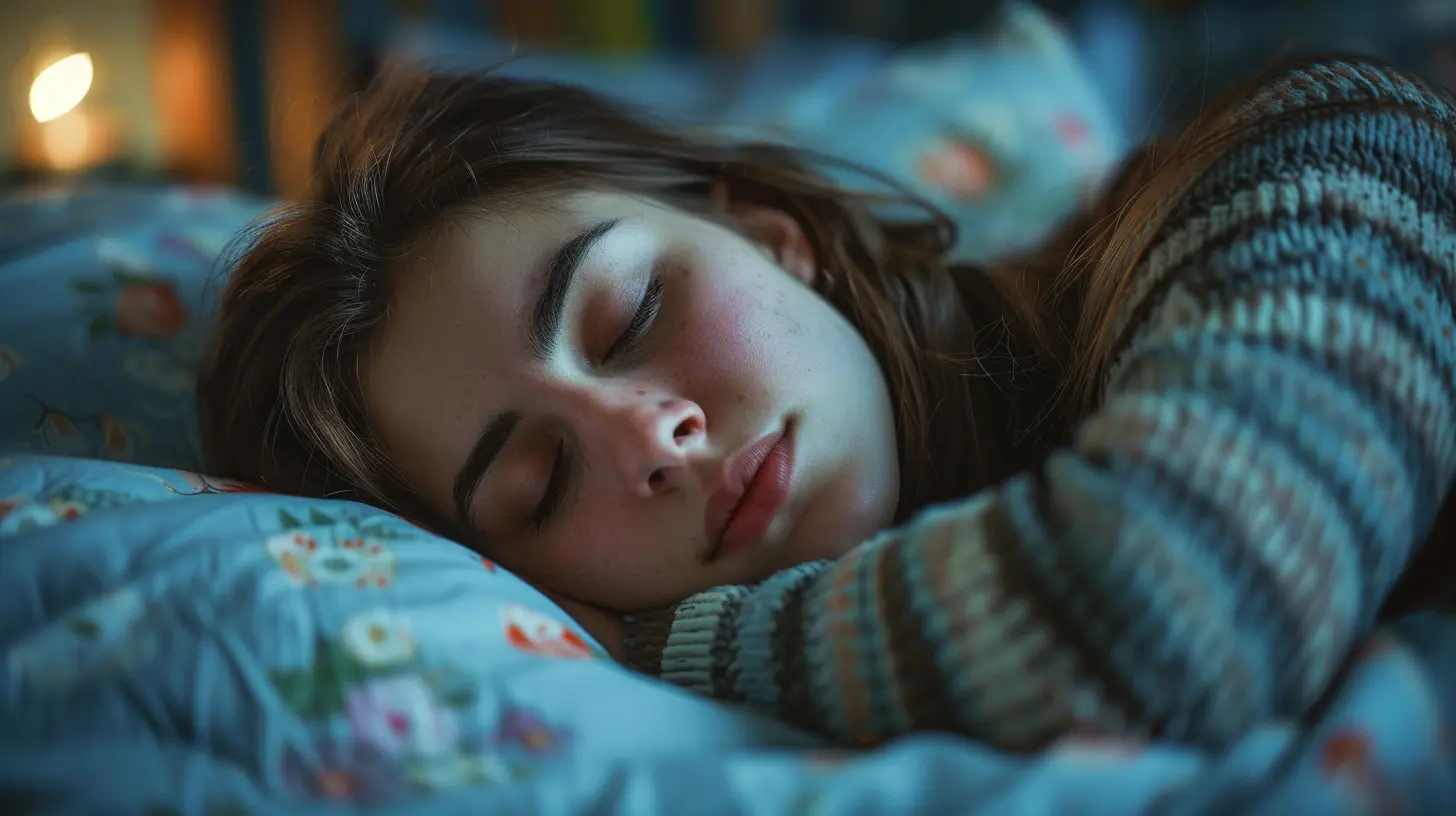The Connection Between Sleep Disorders and Mental Health
4 August 2025
Sleep – it’s one of those things we all need but don't always get enough of. If you've ever pulled an all-nighter, you know how it messes with your brain. You feel groggy, irritable, and just not yourself. But what if poor sleep isn't just an occasional inconvenience? What if it's a chronic issue?
Sleep disorders and mental health are deeply intertwined. When sleep suffers, so does your mind. And when your mind struggles, sleep becomes even harder to achieve. It’s a vicious cycle that many people are stuck in without even realizing the impact it has on their well-being.
Let’s break it down and understand why sleep and mental health are two sides of the same coin.

Why Is Sleep So Important?
Think of sleep as your body’s way of hitting the reset button. It’s when your mind processes emotions, consolidates memories, and repairs itself from the wear and tear of daily life. In short, quality sleep is essential for a healthy body and mind.When you don't get enough rest, your brain starts to misfire. Your cognitive functions slow down, emotions become harder to regulate, and even basic decision-making feels like a challenge. Ever noticed how everything seems worse when you’re sleep-deprived? That’s because sleep directly affects your emotional resilience.

The Most Common Sleep Disorders
There are various sleep-related issues, but some of the most common ones linked to mental health include:1. Insomnia
This is the classic sleep disorder where you struggle to fall asleep, stay asleep, or wake up too early. Insomnia can be short-term (caused by stress or life changes) or chronic, lasting for months or even years.2. Sleep Apnea
This condition disrupts breathing during sleep due to airway obstruction or brain miscommunication. People with sleep apnea often wake up multiple times during the night without even realizing it. Frequent interruptions in sleep can lead to depression, anxiety, and mood swings.3. Restless Leg Syndrome (RLS)
If you've ever felt an uncontrollable urge to move your legs while trying to rest, you might have RLS. This condition makes it nearly impossible to get deep, restful sleep and can lead to increased stress, frustration, and emotional instability.4. Narcolepsy
Narcolepsy causes excessive daytime sleepiness and sudden sleep attacks, making it difficult to maintain a regular routine. It’s often linked to depression and other mental health struggles due to its impact on daily life.
How Sleep Disorders Affect Mental Health
Now, let’s talk about the real issue: how sleep problems mess with your mental well-being. If you've ever felt anxious or down after a poor night’s rest, imagine what chronic sleep deprivation does over time.1. Increases Anxiety and Stress
Lack of sleep cranks up the body's stress response. Ever noticed that when you’re exhausted, even small problems feel enormous? That’s because your brain isn’t getting enough rest to regulate your emotions properly.2. Triggers Depression
One of the strongest connections between sleep and mental health is with depression. Studies show that people with insomnia are at a much higher risk of developing depression. The less you sleep, the more difficult it becomes to maintain a positive outlook on life.3. Weakens Emotional Regulation
Sleep deprivation makes it difficult to control emotions. Ever snapped at someone for no reason after a bad night? That’s your brain struggling to regulate mood due to lack of rest. This emotional instability can strain relationships and lead to feelings of loneliness.4. Worsens Cognitive Function
Without enough sleep, your brain struggles to focus, remember things, and make decisions. It’s like trying to run a marathon with no training—you’re bound to struggle. This mental sluggishness leads to frustration and self-doubt, which can worsen anxiety and depression.
The Vicious Cycle: Mental Health Issues Causing Sleep Disorders
The frustrating part? It’s not just that sleep issues cause mental health problems—it works the other way around too. Anxiety, depression, PTSD, and other conditions can also disrupt sleep.Think about it: when you're anxious, your mind races at night, making it impossible to relax. When you're depressed, changes in brain chemistry can throw off your sleep cycles, making you feel groggy all day but unable to sleep at night. It’s a never-ending loop that’s tough to break.
The Science Behind Sleep and Mental Health
So, what’s happening in your brain when you’re sleep-deprived? A lot, actually:- Disrupted Neurotransmitters – Sleep regulates mood-related neurotransmitters like serotonin and dopamine. When you don’t sleep well, these chemical messengers get thrown off balance, increasing the risk of mood disorders.
- Enhanced Amygdala Activity – The amygdala, the part of your brain responsible for fear and emotions, becomes overactive without sleep. This makes you more prone to emotional outbursts and negative thinking.
- Weakened Prefrontal Cortex – This area of the brain controls rational decision-making. When sleep-deprived, your reasoning ability drops, making it harder to handle stress effectively.
How to Improve Sleep and Mental Health
The good news? You can improve both sleep and mental well-being with some simple lifestyle changes.1. Stick to a Sleep Schedule
Go to bed and wake up at the same time every day, even on weekends. This trains your internal clock and improves sleep quality.2. Create a Relaxing Bedtime Routine
Wind down before bed with activities like reading, meditation, or gentle stretching. Avoid screens—blue light messes with melatonin production, making it harder to fall asleep.3. Limit Caffeine and Alcohol
Caffeine can keep you wired for hours, and alcohol, while it might make you sleepy at first, disrupts deep sleep. Try to cut back, especially in the hours leading up to bedtime.4. Exercise Regularly
Physical activity helps regulate stress hormones and improves overall sleep quality. Just avoid intense workouts right before bed, as they can be too stimulating.5. Manage Stress and Anxiety
Practicing mindfulness, journaling, or seeking therapy can help you process emotions in a healthier way, reducing sleep disturbances.6. Consider Professional Help
If sleep issues persist, don’t hesitate to consult a doctor or sleep specialist. There are effective treatments out there, including Cognitive Behavioral Therapy for Insomnia (CBT-I), which has been proven to work wonders.Final Thoughts
Sleep and mental health are deeply connected—when one suffers, the other follows. Breaking the cycle takes effort, but it's completely doable. By prioritizing healthy sleep habits, managing stress, and seeking help when needed, you can improve both your rest and your emotional well-being.At the end of the day, your mind and body deserve rest. So, give yourself the gift of good sleep—you’ll be amazed at how much better life feels when you're well-rested.
all images in this post were generated using AI tools
Category:
Clinical PsychologyAuthor:

Alexandra Butler
Discussion
rate this article
1 comments
Aurelia McCall
Sleep impacts mental health more than we often realize.
August 10, 2025 at 4:35 AM

Alexandra Butler
Absolutely! Sleep is crucial for mental well-being, and disruptions can significantly affect mood and cognitive function.


